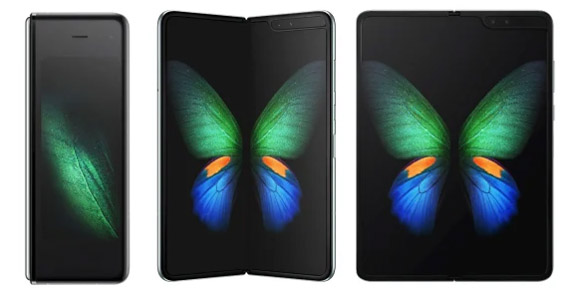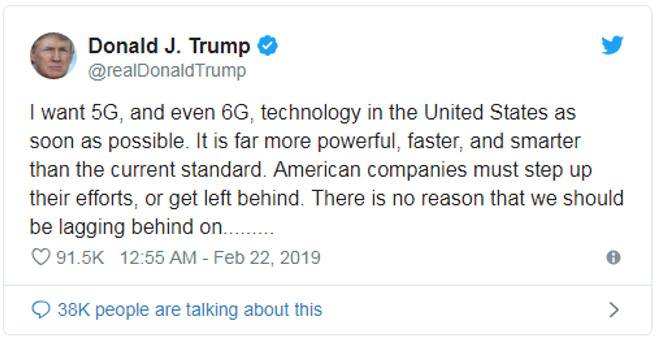‘This is a day I’ve been looking forward to for two and a half years. Every once in a while, a revolutionary product comes along that changes everything.
‘…Today, we’re introducing three revolutionarily products…an iPod, a phone and an internet communicator. An iPod, a phone…are you getting it?’
This is what Steve jobs told a cheering crowd in January 2007.
He was introducing maybe the most revolutionary product Apple Inc [NASDAQ:AAPL] has ever made.
The iPhone.
We know it was revolutionary because EVERYONE would end up copying Apple’s design and product.
The smartphone industry, how it looks today, is thanks to Apple. Although I’m sure someone else might have figured it out sooner or later.
From the beginning of 2007, the stock was up 15% 10 days in. By July, Apple was up 74%. And by the end of December, the stock had doubled and then some for the year.
Of course, a rising bull market helps.
A lot of the ‘pile in’ investors were so gung-ho on the iPhone, they didn’t think Apple could lose.
Fast forward more than 10 years and Apple is losing.
They’re not the world’s most popular smartphone.
They’re not even number two.
Apple is now behind Samsung and Huawei based on global shipments. They’re also just starting to find the top price range for their ‘revolutionary’ devices.
You’d think people would have learnt from Apple’s experience.
That doesn’t seem to be the case.
Samsung is about to release their Galaxy Fold. And everyone is saying it will be the next big thing…
Everything is a toaster in the long run
Reported by the Australian Financial Review (AFR):
‘In San Francisco, the world’s largest consumer electronics company didn’t just announce the 10th version of its flagship line of smartphones, the Galaxy S10 and all its variants (which now number more than ever).
‘It also announced the phone it thinks may one day replace the smartphone: the Galaxy Fold, a phone with a 4.6-inch display on the front, that opens up like a book to reveal a foldable, 7.3-inch display on the inside, that’s due to go on sale in Australia within months.’
 |
| Source: AFR |
Samsung said they’ve been working on the device since 2011.
It took that much time for them to develop a screen that was flexible, durable and felt like glass when you used it.
They’re pricing the foldable phone at a whopping $2,770, clearly because people have too much money these days.
Their new traditional phone, the Galaxy S10 is also being touted as a smartphone breakthrough. Again, from the AFR:
‘It’s taken Samsung 10 years, but the Korean phone maker has finally nailed the smartphone, just as it’s about to move on.
‘The Galaxy S10, S10+ and S10e it just announced in San Francisco are, with the possible exception of battery life, spot on.
‘Things that we hated in the past few models, like the iris scanning system that rarely worked, have been dumped in favour of things that do work.
‘…Indeed, I daresay that the Galaxy S10+ with the white ceramic back and the hint of rose gold in the metal trim is the most stylish phone Samsung has ever done.’
But like Apple, I don’t see this going anywhere long-term.
If the Galaxy Fold is a hit, why wouldn’t all the other major phone makers just copy it? It’s what they did with the original iPhone.
There just doesn’t seem to be a sticky quality in the realm of smartphones.
Sure, you might use and like Apple’s iPhone, but everything is a toaster in the long run.
By that I mean without a strong competitive advantage, there’s nothing to keep people from remaining loyal to any one smartphone maker.
There was one bonus that comes with the Samsung phone that I thought was cool, though.
Free 5G upgrades.
Bring on 6G, Trump says
At the same San Francisco launch, Telstra Corporation Ltd [ASX:TLS] offered free upgrades to 5G versions of the Galaxy 10S.
The telco has already installed more than 200 5G base stations. The roll out is still in progress.
Telstra’s consumer segment executive, Kevin Teoh said 5G coverage should ‘absolutely [be available] in metro areas, it’s fairly safe to assume.’
In my opinion, you’d be far better off focusing on this 5G opportunity than trying to pick the next short-term consumer electronics winner.
The industry for building out 5G capabilities involves large, long-running contracts. Those businesses that own the infrastructure can then monetise those networks with far less competition.
It’s just a more certain place to be. Better than betting on how consumer preferences might change anyway.
Over in the US, Trump has made this a big topic.
He’s pushing US telecommunication firms to roll out 5G as soon as possible. Trump is even talking about 6G already.
Here’s a recent tweet from the US President:
 |
| Source: Twitter |
Nothing wrong with a bit of healthy competition, right?
Your friend,
Harje Ronngard





Harje Ronngard is one of the editors at Money Morning New Zealand. With an academic background in finance and investments, Harje knows how difficult investing is. He has worked with a range of assets classes, from futures to equities. But he’s found his niche in equity valuation. There are two questions Harje likes to ask of any investment. What is it worth? And how much does it cost? These two questions alone open up a world of investment opportunities which Harje shares with Money Morning New Zealand readers.